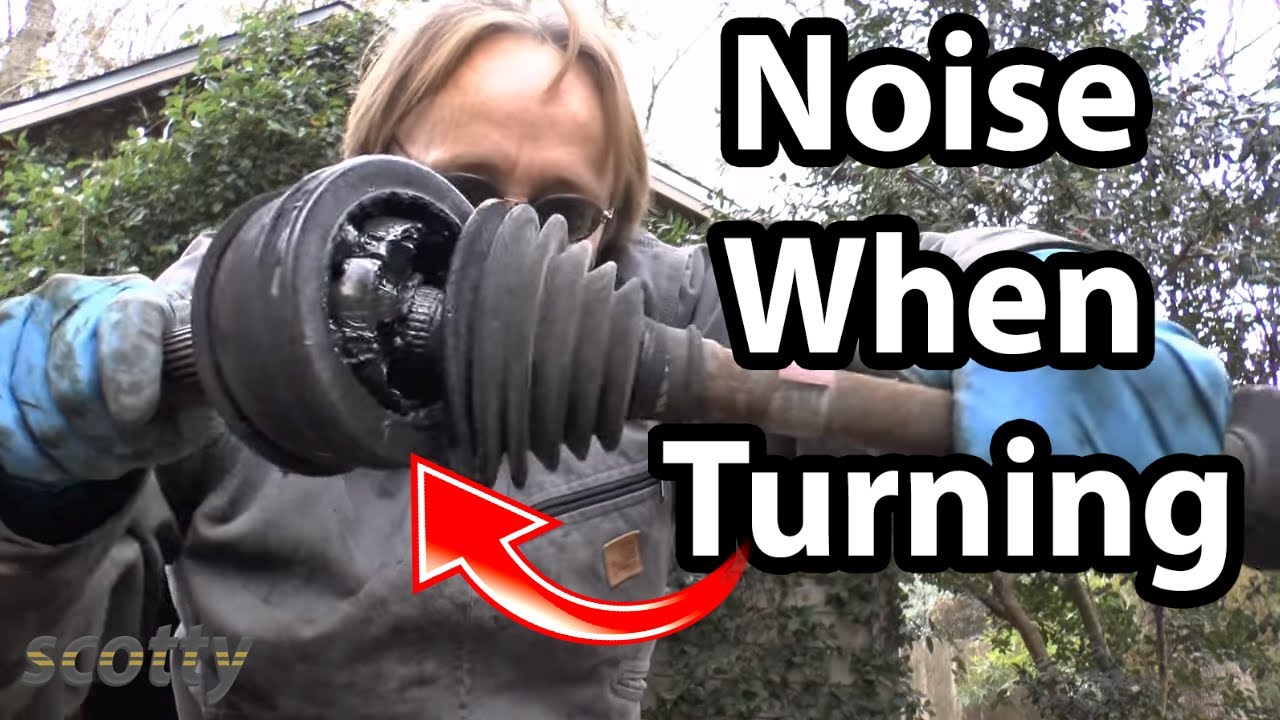A car making a humming noise when accelerating may indicate a problem with the transmission or worn-out tires. This noise can be caused by a faulty CV joint or wheel bearing, leading to potential performance issues.
It is crucial to diagnose and address the root cause to prevent further damage and ensure safe driving conditions. Regular maintenance and inspections by a qualified mechanic can help identify and resolve any issues with your car’s acceleration and overall performance.
Don’t ignore the humming noise, tackle the problem head-on to avoid costly repairs or potential accidents.
Identifying The Sound’s Nature
Car owners often become concerned when they hear a humming noise when accelerating. This sound can vary in nature depending on several factors. One characteristic of the humming noise is that it typically increases or decreases with acceleration. As you press the gas pedal, the noise may become more pronounced and fade away when you release it. Another important aspect to consider is the location and timing of the sound. The humming noise is most noticeable inside the vehicle, especially when driving at higher speeds. It may also be more prominent in certain areas, such as when taking sharp turns or going uphill. Paying attention to these characteristics can help you provide accurate information to a mechanic, so they can diagnose and fix the issue effectively.
Common Causes Behind The Hum
Are you hearing a humming noise coming from your car when you accelerate? This can be a sign of certain underlying issues that need to be addressed. One common cause of this noise is wheel-related problems. Damaged wheel bearings or uneven tire wear can create a humming sound, especially when you speed up.
Another possible cause is engine and transmission concerns. Issues with these components, such as a worn-out serpentine belt or a misaligned transmission, can lead to a humming noise during acceleration.
The exhaust system can also play a role. Damaged or loose exhaust components, such as a muffler or catalytic converter, can create a humming noise when the engine revs up.
If you are experiencing a humming noise when accelerating, it is important to have your vehicle inspected by a qualified mechanic. They will be able to diagnose the specific issue and provide the necessary repairs. Ignoring these problems can lead to further damage and more expensive repairs down the line.
Initial Inspection
When experiencing a humming noise when accelerating in your car, there are a few key components that you should visually inspect first. Begin by examining the tires for any signs of irregular wear or damage. Uneven tire wear can cause a humming noise, especially when accelerating.
Next, check the wheel bearings for any excessive play or signs of wear and tear. Worn-out wheel bearings can generate a humming sound, particularly during acceleration. Inspect the CV joints or drive axles for any cracks, tears, or leaks. Faulty CV joints can produce a humming noise when accelerating, particularly during turns.
Additionally, carefully examine the exhaust system for any loose or damaged components. A loose or damaged exhaust pipe or muffler can result in a humming noise under acceleration. Lastly, inspect the engine belts for any signs of wear, fraying, or misalignment. A worn-out or misaligned engine belt can create a humming noise when the car is in motion.
| Components to Check | Possible Issues |
|---|---|
| Tires | Irregular wear or damage |
| Wheel Bearings | Excessive play or wear and tear |
| CV Joints or Drive Axles | Cracks, tears, or leaks |
| Exhaust System | Loose or damaged components |
| Engine Belts | Wear, fraying, or misalignment |

Credit: orionmagazine.org
Advanced Diagnostics
Car makes humming noise when accelerating is a common issue that many car owners face. Advanced diagnostics play a crucial role in identifying and resolving the problem. By utilizing diagnostic tools, professional mechanics can quickly pinpoint the source of the humming noise and take appropriate actions. These tools provide detailed information about the car’s systems and allow mechanics to access real-time data, including engine performance, fuel efficiency, and emissions levels.
Professional assessment advantages also include saving time and resources. The advanced diagnostic tools help mechanics assess the condition of the car accurately, eliminating the need for trial and error-based approaches. Mechanics can use the gathered data to diagnose complex issues swiftly, minimizing the time spent on troubleshooting.
To sum up, utilizing advanced diagnostic tools offers significant advantages when it comes to identifying and resolving the humming noise issue in cars. These tools enable mechanics to perform professional assessments and diagnose problems promptly, leading to effective repairs and improved overall car performance.
Tires And Wheel Bearings
When your car makes a humming noise while accelerating, one possible cause could be worn or unbalanced tires. Over time, tires can become worn or unevenly worn, leading to vibrations and humming sounds. It is important to regularly inspect your tires for signs of wear, such as low tread depth or uneven tread wear patterns. If your tires are worn or unbalanced, it can cause the vehicle to vibrate and produce a humming noise. Another potential cause of the humming noise could be faulty wheel bearings. Wheel bearings are responsible for allowing the wheels to spin smoothly. If they become worn or damaged, they can produce a humming or grinding noise, particularly when accelerating. If you suspect that your wheel bearings are the issue, it is important to have them inspected and replaced if necessary to prevent further damage to your vehicle.
Under The Hood Elements
In relation to the humming noise that occurs when you accelerate your car, there are a few key elements under the hood that could be potential culprits. One possibility is wear and tear on the serpentine belt. This belt helps to power various components of your vehicle, including the alternator, power steering pump, and air conditioning compressor. Over time, the belt can become worn and cracked, leading to noise when it rubs against the pulleys.
The pulleys themselves can also be a source of noise. If the bearings within the pulleys are worn or damaged, they may produce a humming noise when the engine is running and the belt is engaged. Additionally, the tensioner that keeps the belt properly tensioned can also experience issues. A malfunctioning tensioner may cause the belt to slip or become misaligned, resulting in noise during acceleration.
It is important to address these issues promptly, as continued use of a worn serpentine belt or faulty pulleys and tensioners can lead to further damage or even complete belt failure. Regular inspections and maintenance can help prevent these problems and keep your car running smoothly.
Transmission And Drivetrain Troubles
Transmission and drivetrain troubles can cause a humming noise when accelerating in your car. It is important to check the transmission fluid levels and quality regularly to ensure smooth operation. Low fluid levels or dirty fluid can lead to gearbox problems, resulting in unusual noises. CV joints are another component that can contribute to the humming sound. These joints, located on either end of the drive shafts, transfer power from the transmission to the wheels. When they become worn or damaged, they can create noise during acceleration. Inspecting the CV joints for any signs of wear, such as torn or cracked rubber boots or clicking sounds when making sharp turns, can help identify the issue. Regular maintenance and addressing any transmission or drivetrain problems promptly can help alleviate the humming noise and ensure optimal performance of your car.
Simple Fixes And Adjustments
Is your car making a humming noise when accelerating? Don’t worry, there are simple fixes and adjustments you can try before seeking professional help. Start by checking your tire inflation and rotation strategies. Incorrect tire pressure and uneven wear can cause your car to make strange noises. Ensure that your tires are properly inflated and consider rotating them regularly to promote even tread wear. Another common culprit of a humming noise is worn-out belts and pulleys. Over time, these components can become loose or damaged, leading to noise during acceleration. Inspect the belts for any signs of wear and ensure they are properly tensioned. If necessary, replace any faulty belts or pulleys to eliminate the noise.
Professional Repairs Required
Car Makes Humming Noise When Accelerating is a common issue that many car owners face. While there are several factors that can cause this problem, it is important to seek professional repairs when dealing with complex issues.
Knowing when to seek a mechanic’s help is crucial. If you notice that the humming noise gets louder as you accelerate or if it is accompanied by vibrations or a loss of power, it is recommended to take your car to a professional for inspection.
When it comes to complex issues, relying on professional expertise is essential. A mechanic will perform a thorough diagnostic test to identify the exact cause of the noise and determine the necessary repair procedures. These may include checking the drivetrain components, inspecting the exhaust system, or examining the wheel bearings.
Ignoring the humming noise and delaying the repairs can lead to further damage and increased repair costs. So, it is crucial to address the issue promptly and entrust the repair work to a qualified mechanic.
Preventive Measures To Avoid Future Humming
Preventive Measures to Avoid Future Humming
Regular maintenance schedule:
Regular maintenance is key to preventing future humming noises when accelerating. Make sure to follow your vehicle’s maintenance schedule as recommended by the manufacturer. This includes routine oil changes, filter replacements, and inspections of the engine, transmission, and exhaust system. Regular maintenance helps identify and address any potential issues before they escalate into major problems.
Early detection and action tips:
Keep an ear out for any unusual sounds, particularly a humming noise when accelerating. If you notice this, it’s important to take early action. Check the condition of your belts, as worn or loose belts can cause humming noises. Inspect your tires for any signs of wear or uneven tread. Damaged tires can also contribute to humming noises. Additionally, ensure that all fluids are at the proper levels and replace any worn-out components. Taking these early detection and action steps can help prevent more serious issues down the line and keep your driving experience smooth and comfortable.
Frequently Asked Questions On Car Makes Humming Noise When Accelerating
Why Is My Car Making A Humming Noise When I Accelerate?
If your car is making a humming noise when you accelerate, it could be due to a problem with the exhaust system, a worn-out wheel bearing, or a damaged transmission component. It is recommended to get your car checked by a professional mechanic to diagnose and fix the issue.
Could A Loose Belt Cause A Humming Noise When I Accelerate?
Yes, a loose belt can cause a humming noise when you accelerate. If the belt is worn or not properly aligned, it can create friction and produce a humming or whining noise. It is important to have your belts inspected and replaced if necessary by a qualified mechanic.
Is A Humming Noise During Acceleration A Sign Of A Transmission Problem?
A humming noise during acceleration can indeed be a sign of a transmission problem. It could indicate worn-out gears, low transmission fluid, or a faulty torque converter. It is recommended to have your car inspected by a professional to identify and resolve any transmission issues.
Conclusion
If your car is making a humming noise when accelerating, it could be indicative of several issues. From a worn-out transmission to a malfunctioning wheel bearing, it is important to accurately diagnose and address the problem to ensure your vehicle’s optimal performance and safety.
Don’t ignore these warning signs, as timely intervention can prevent further damage and costly repairs down the road. Consult a professional mechanic to efficiently troubleshoot and resolve the humming noise in your car. Keep your ride smooth and noise-free!







